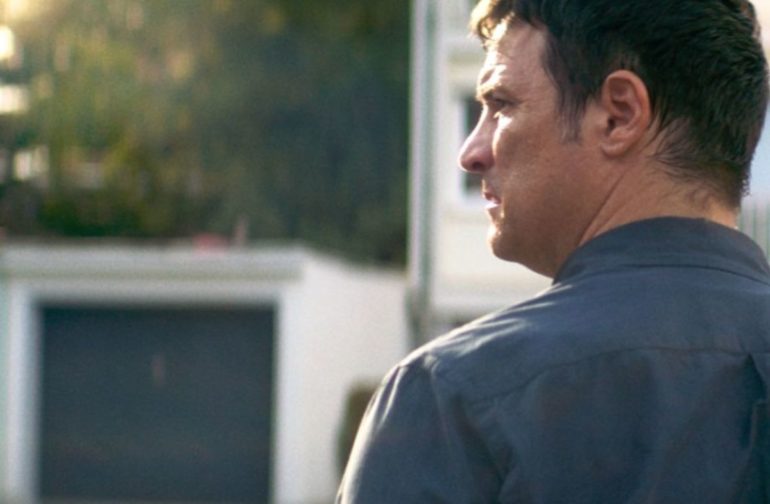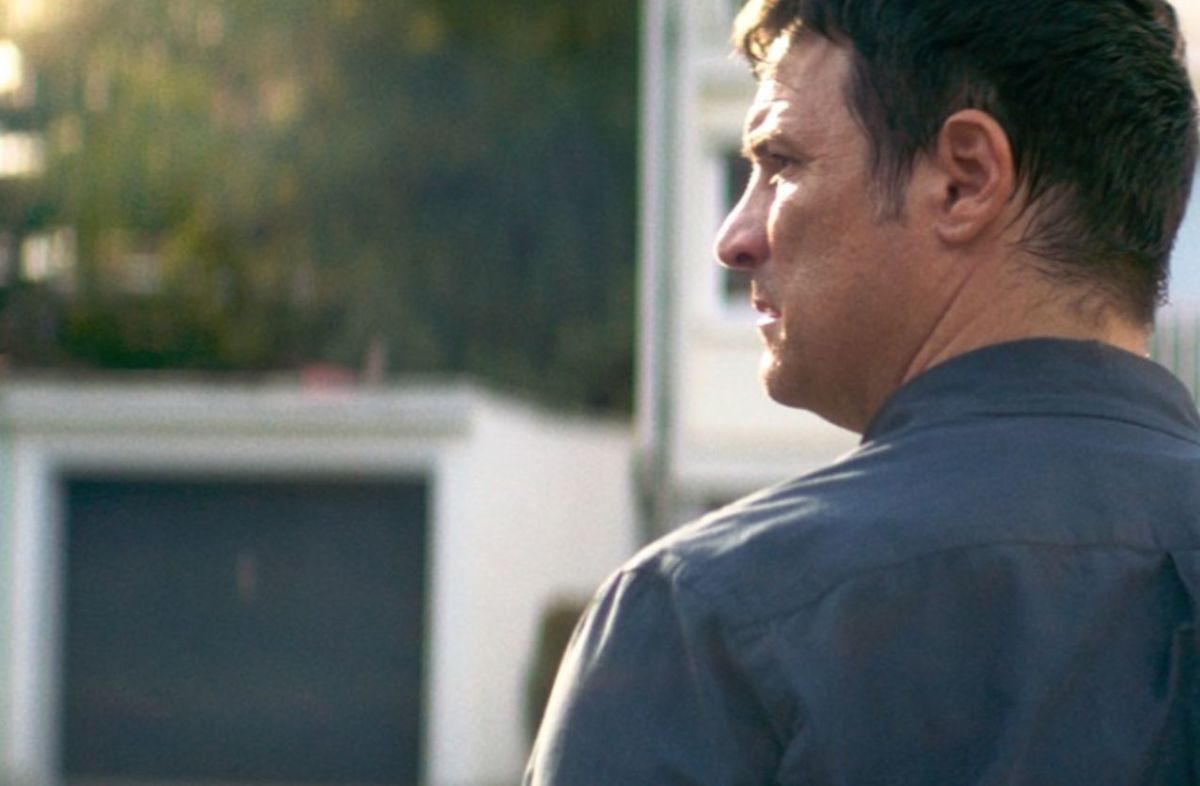A Kosovar struggles with institutional German racism in Exile, a carefully crafted psychological drama that can’t quite align form with function. While stylistically impressive — especially in the way it finds novel methods to express the mental disorientation that comes with discrimination — Exile undermines its own message through a lack of narrative clarity.
It starts when Xhafer (Mišel Matičević) finds a rat mailed to his front gate. He asked to be transferred away from the lab two years ago due to a fear of the rodents, making him believe someone at work planted the dead animal.
The next day, he sits in a conference room waiting for a meeting to start, only to realise that it has been transferred to a different room. He didn’t get the email as he was left off the mailing list. When he asks his colleague Urs (Rainer Bock) why he didn’t get the email, he is asked to check his settings. Perhaps it went to spam?
Exile nails a type of racism that is specific to Germany. It is subtle yet patronising, rude in an ostensibly well meaning way. This is especially true in the workplace, where companies love to tout their diversity by bluntly singling out anyone from a different ethnicity. While this is meant to be inclusive, it can’t help but stress their foreignness — a scene that Exile gets spot on, with his colleagues even mistaking him for Croatian. To these Germans, all Balkaners are the same.
Xhafer talks about an Albanian saying: a man falls from an apple tree. When he goes to the hospital, he tells the doctor that he only wants visitors who have also fallen from apple trees. But Xhafer is one of the only Kosovar men with any authority in this unnamed German town, making it difficult to confide in anyone else. He definitely can’t talk to his German wife (Sandra Hüller), who unhelpfully argues that they can’t be that racist towards him because he’s not Arabic-looking.
When you are the victim of constant oppression, you can understandably be paranoid when there is no cause. The film thrives inside this ambivalence, exploring whether these claims of racism are justified or merely Xhafer’s projection. It appears he has lived in a racist country so long he may not be able to tell the difference between reality and his own perception. This ambivalence is reflected in the film’s style and content, forcing the viewer to connect the dots on what’s really happening.
The use of soft-focus is inspired, stressing the way Xhafer cannot quite define his oppression. Additionally, often the person addressing Xhafer is out of frame, the camera focusing only on his reactions. The viewer becomes like Xhafer: able to point out prejudice and ignorance, but finding it trickier to tell whether or not there is an active campaign of hate against him.
Serbian-German actor Matičević — who you may recognise as the head of the Croatian mafia in Dogs of Berlin — puts in a solid shift here, especially when masking rage under the veneer of corporate politeness. Nonetheless, Exile can’t quite use this talent effectively enough, a subplot involving an affair with a Kosovar office cleaner muddying the picture just when it should be clearing things up. It’s one thing to gaslight your characters, but there’s no need to gaslight your audience, too.
Read the rest of our Berlinale reviews here.
Some of the coverage you find on Cultured Vultures contains affiliate links, which provide us with small commissions based on purchases made from visiting our site.


